Face Tattoos
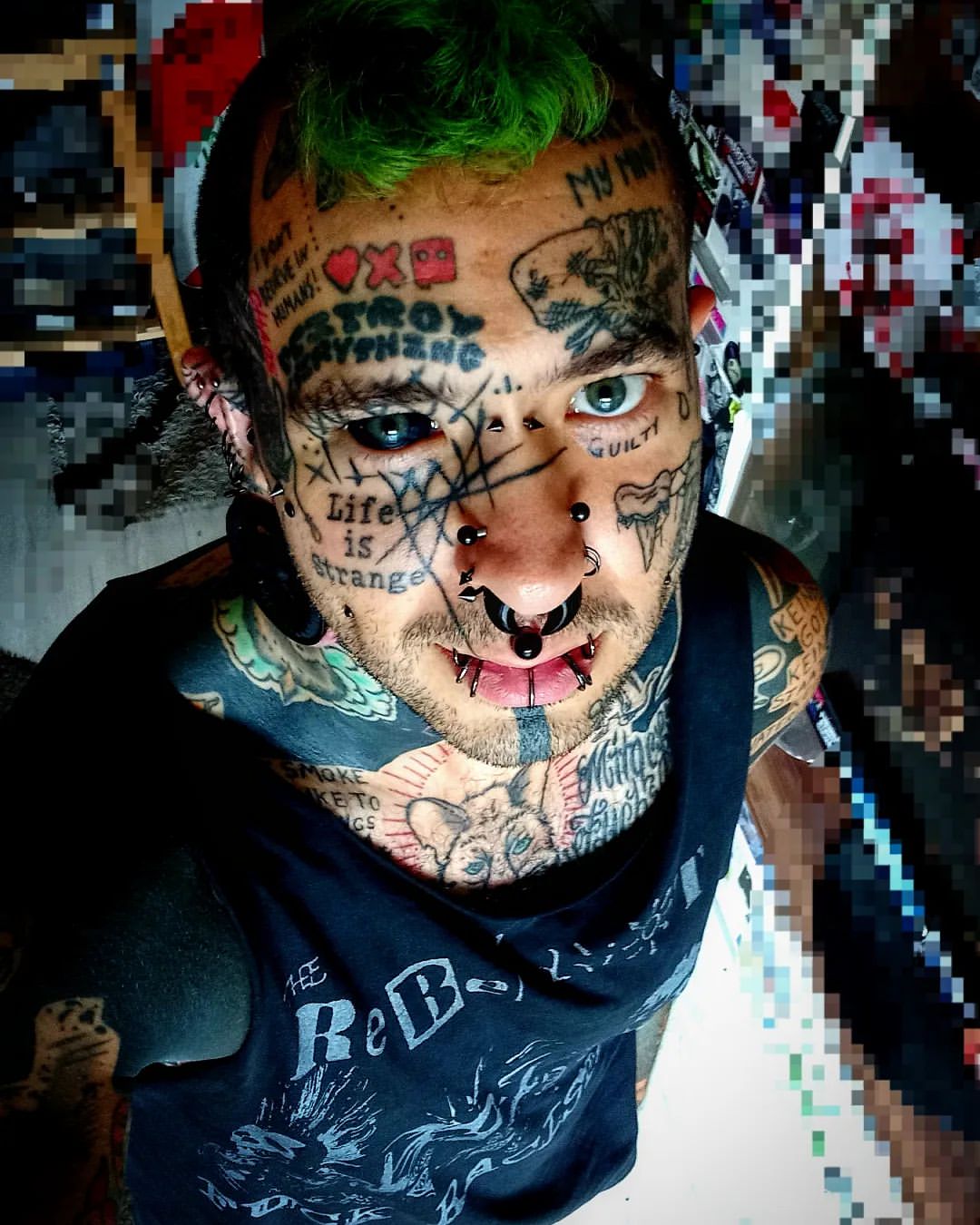
So you’ve probably seen them popping up more and more lately – face tattoos. Whether it’s a small, discreet design or a full-blown masterpiece covering one’s entire face, these eye-catching and polarizing body modifications have become quite the trend. But what is it about face tattoos that makes them so alluring and intriguing? In this article, we’ll explore the fascinating world of face tattoos, examining their history, cultural significance, and the reasons why people choose to adorn their faces with permanent ink. Get ready to embark on a journey into this captivating and controversial realm of self-expression.
Beautiful Face Tattoos (Please Pin Pics)


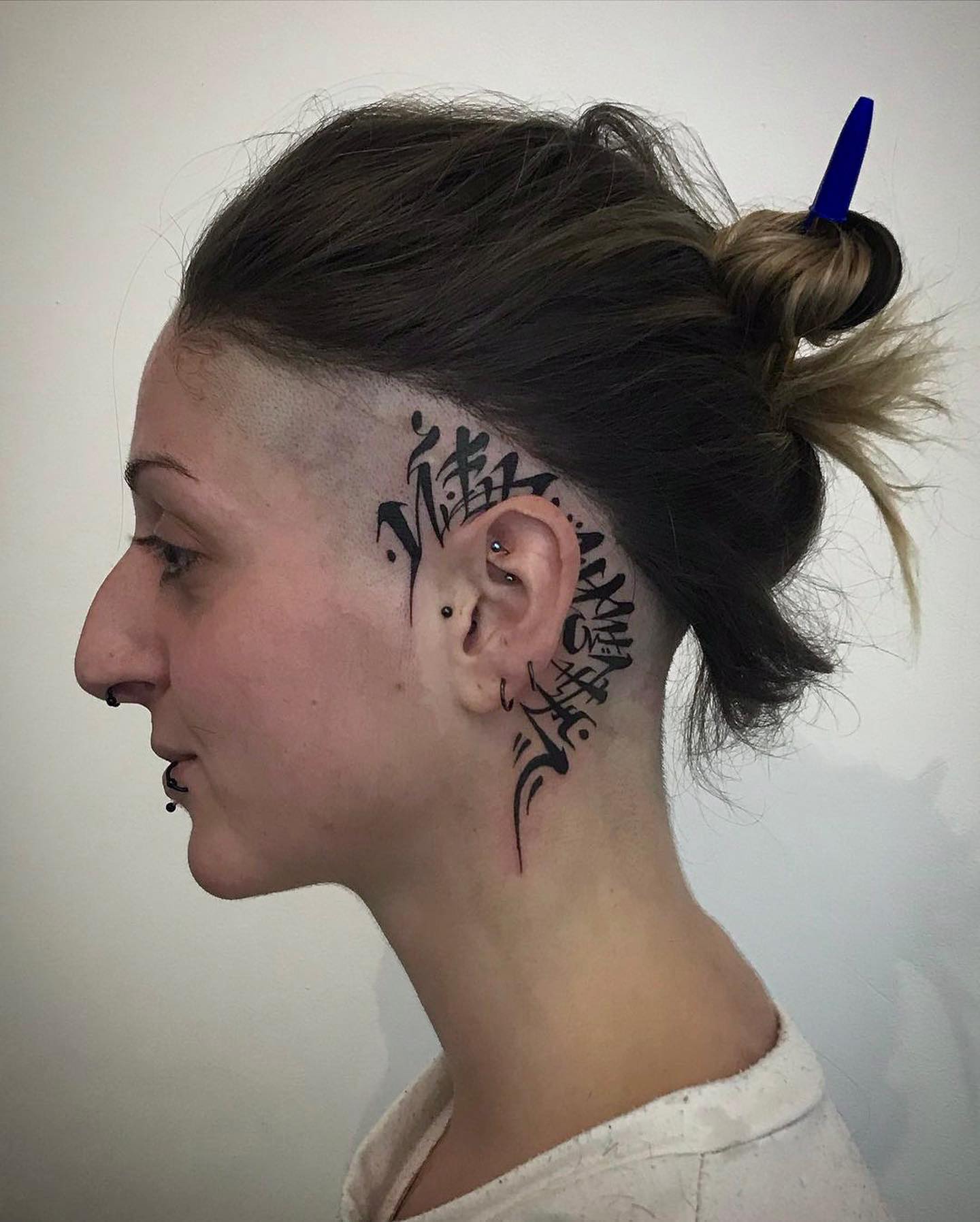
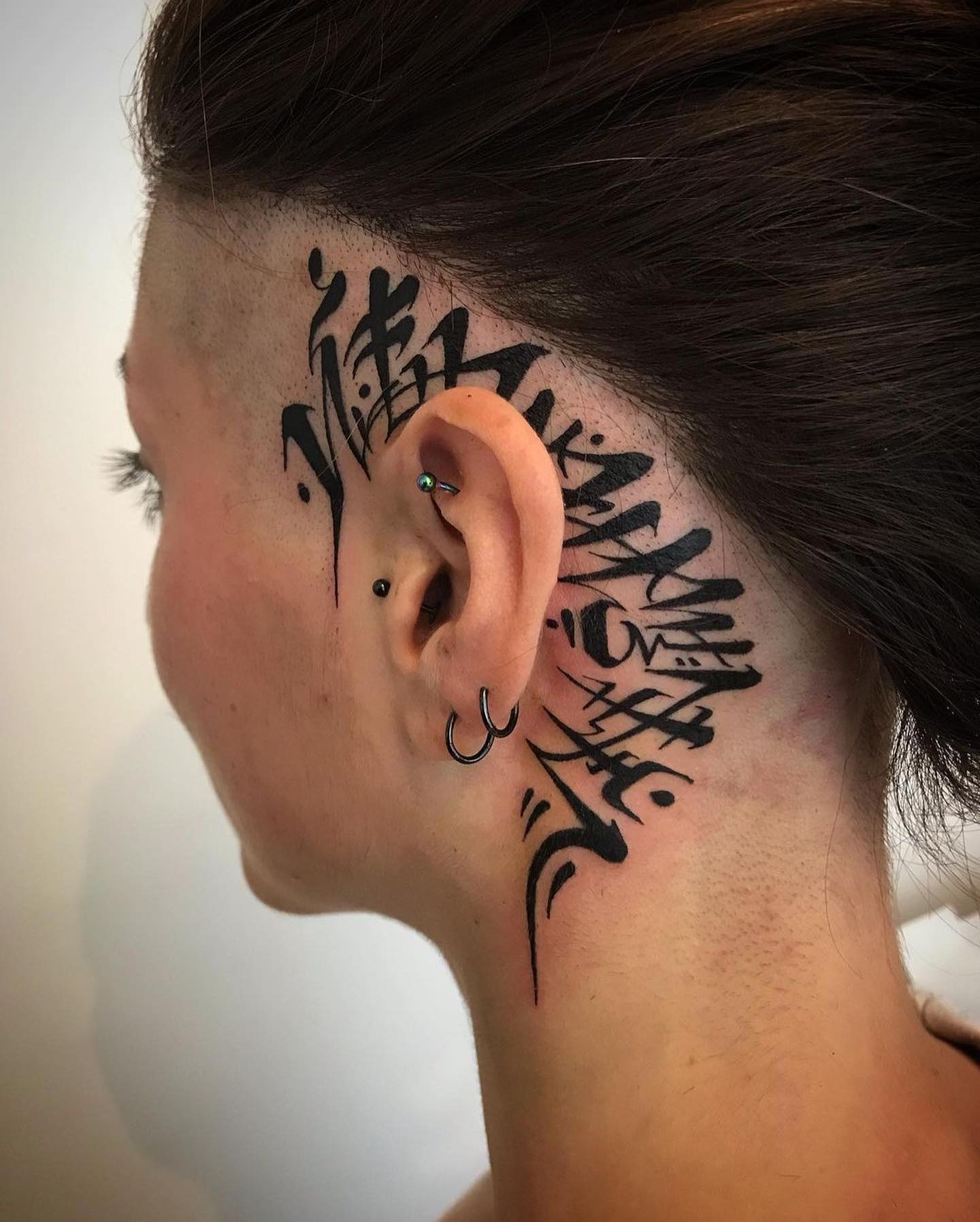
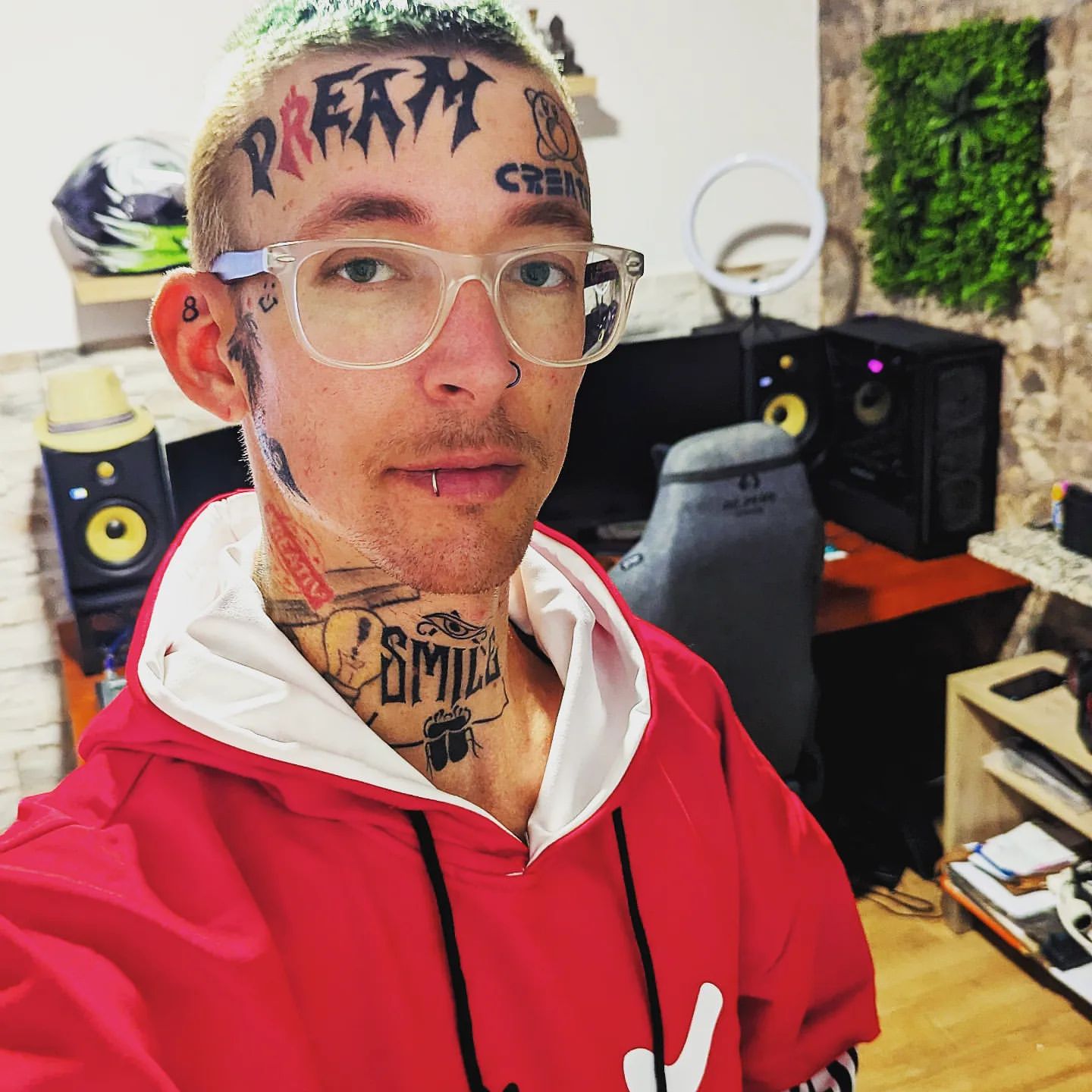
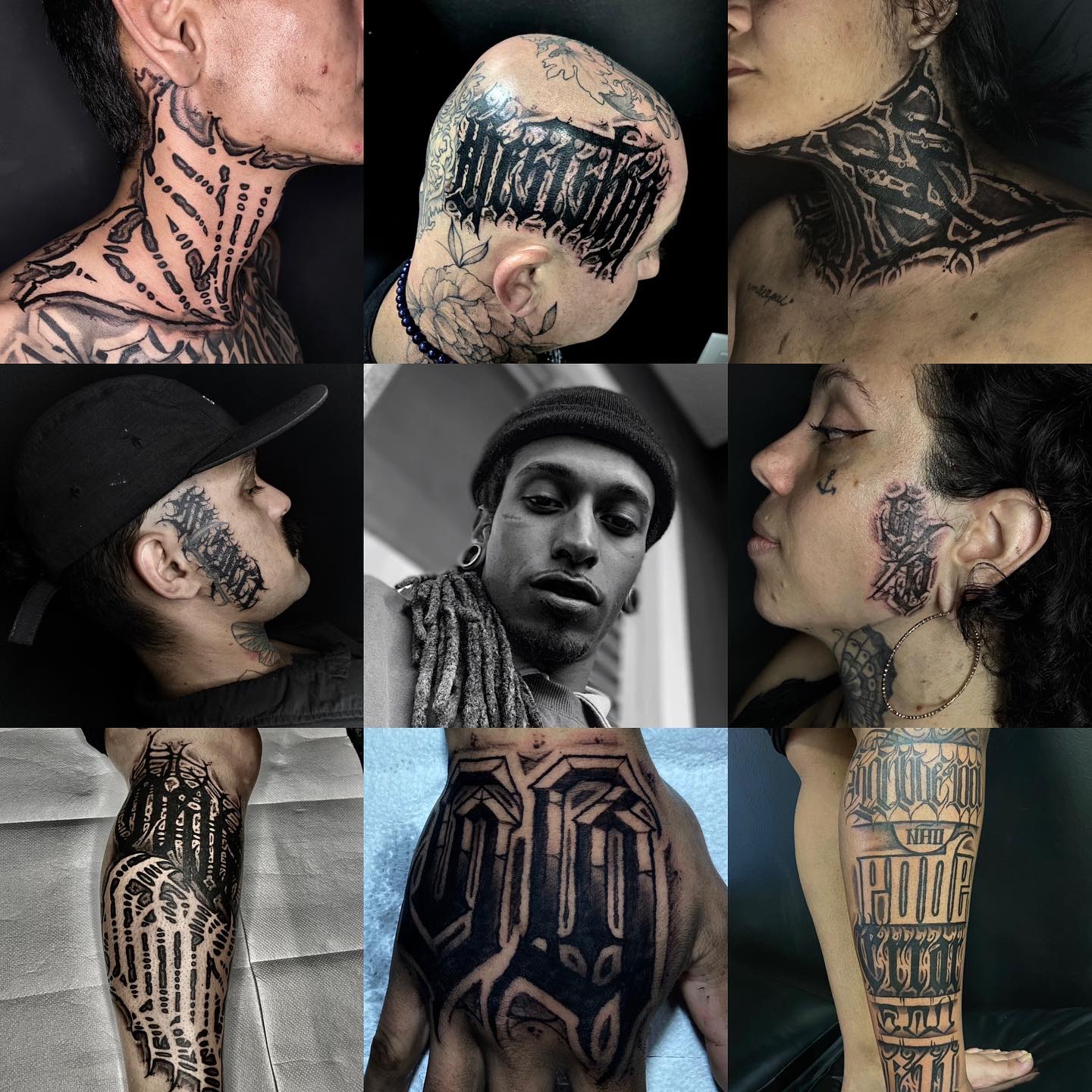
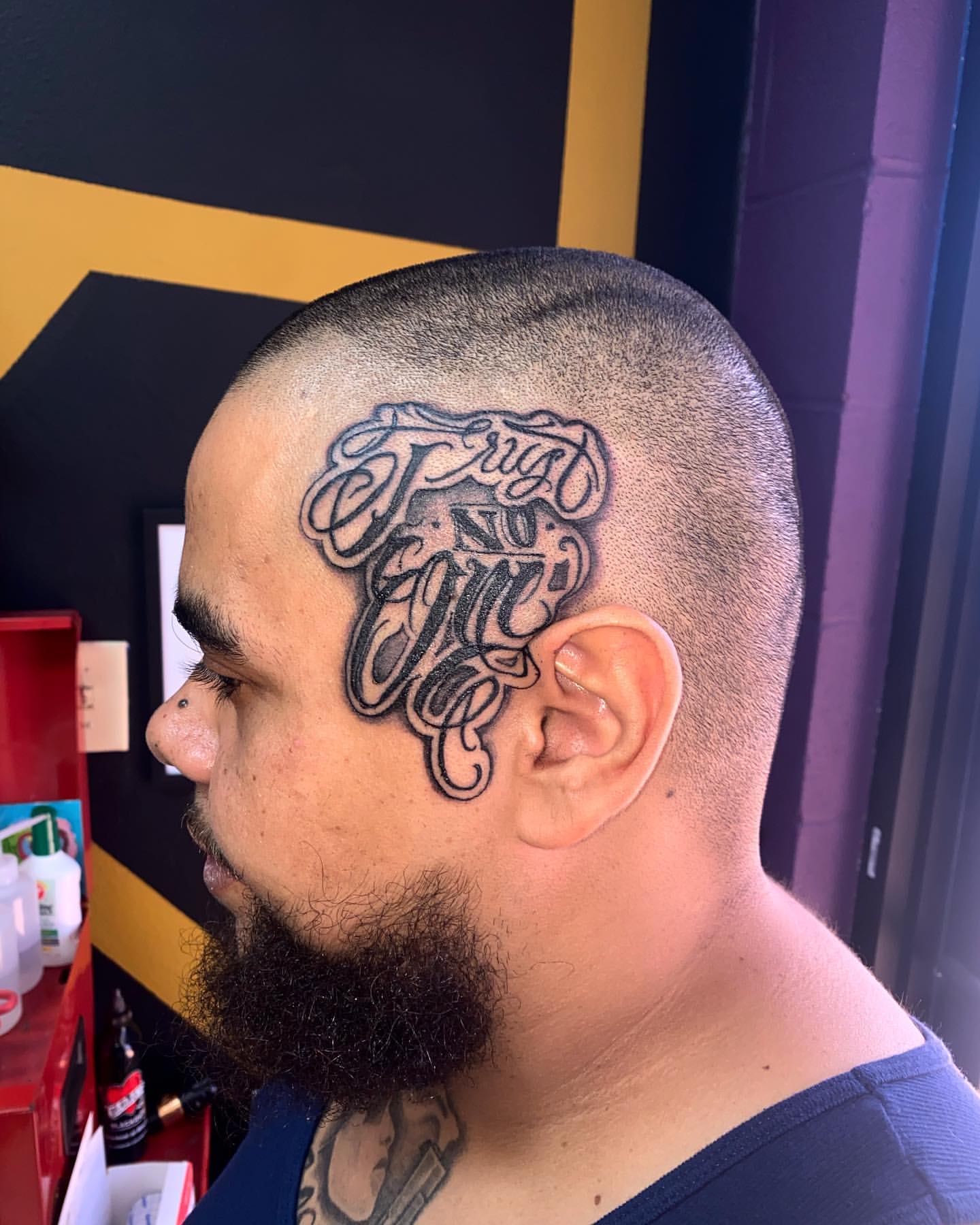

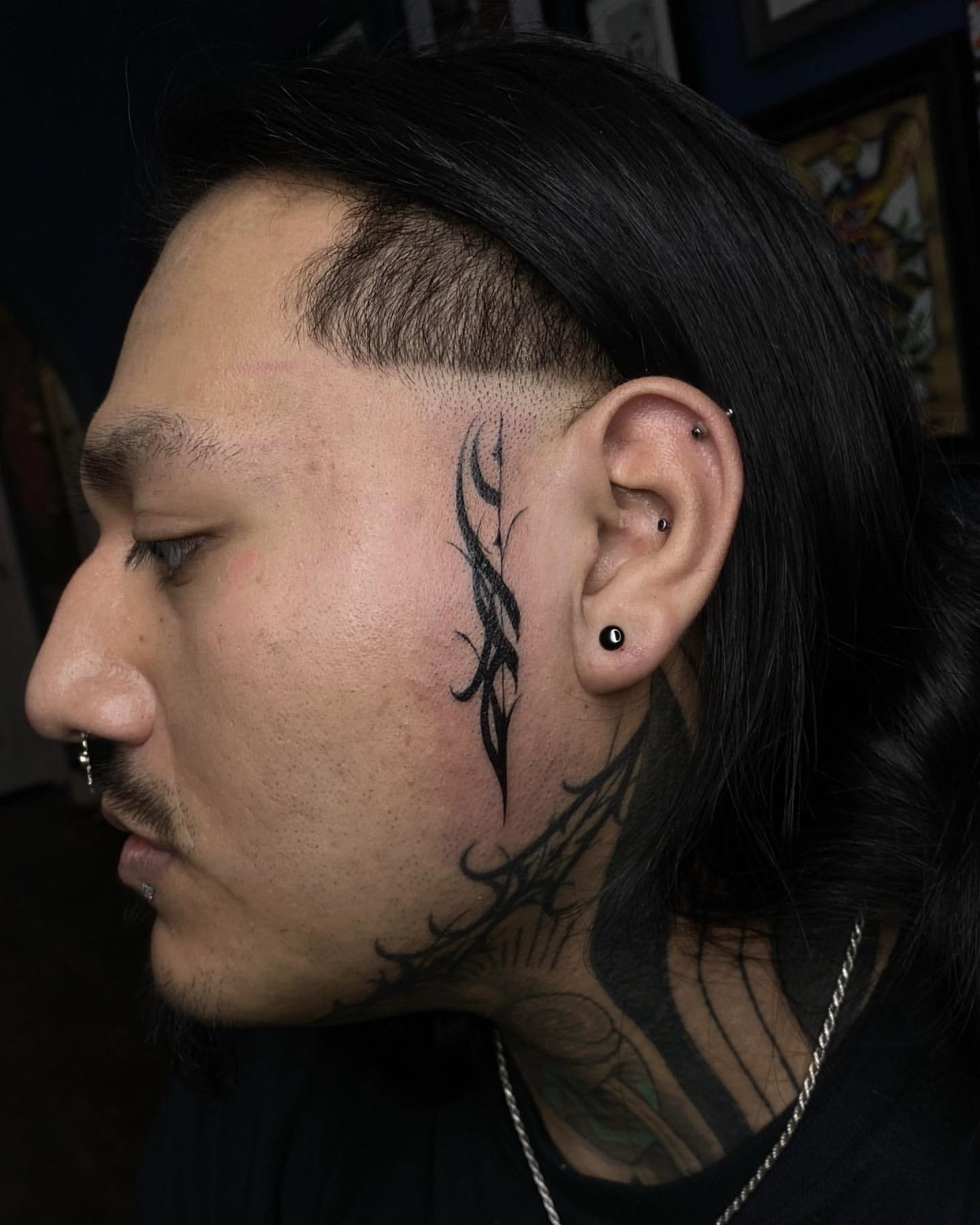
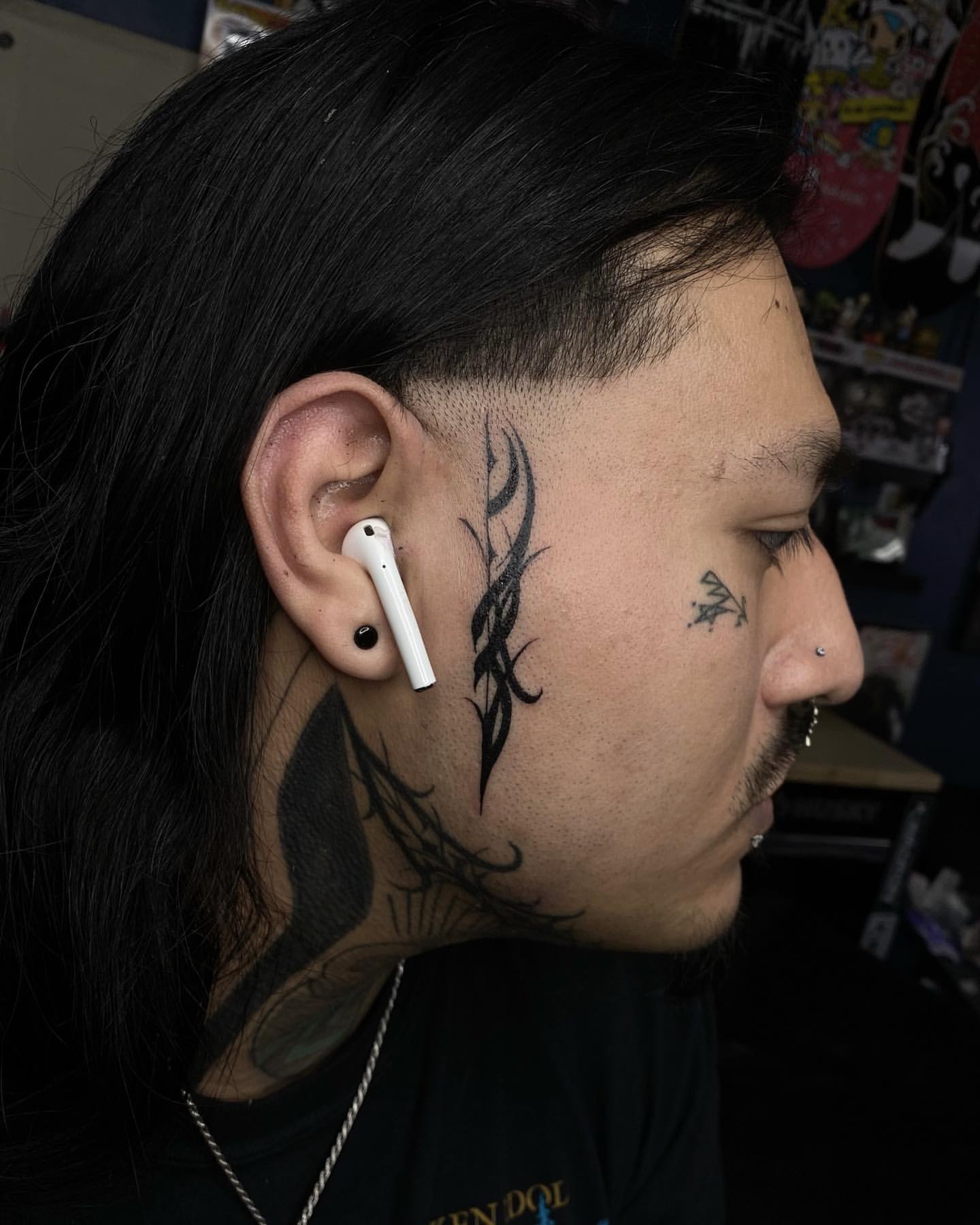
Understanding the History of Face Tattoos
Ancient tribes and face tattoos
Face tattoos have a rich and diverse history, dating back centuries to ancient tribes. These tribes saw face tattoos as a way to communicate important messages about their identity, status, or beliefs. For example, in the Maori culture of New Zealand, face tattoos, known as moko, were reserved for the elite members of society and were seen as a symbol of power and honor. Additionally, in Polynesian cultures, face tattoos were a way to depict one’s lineage and ancestry.
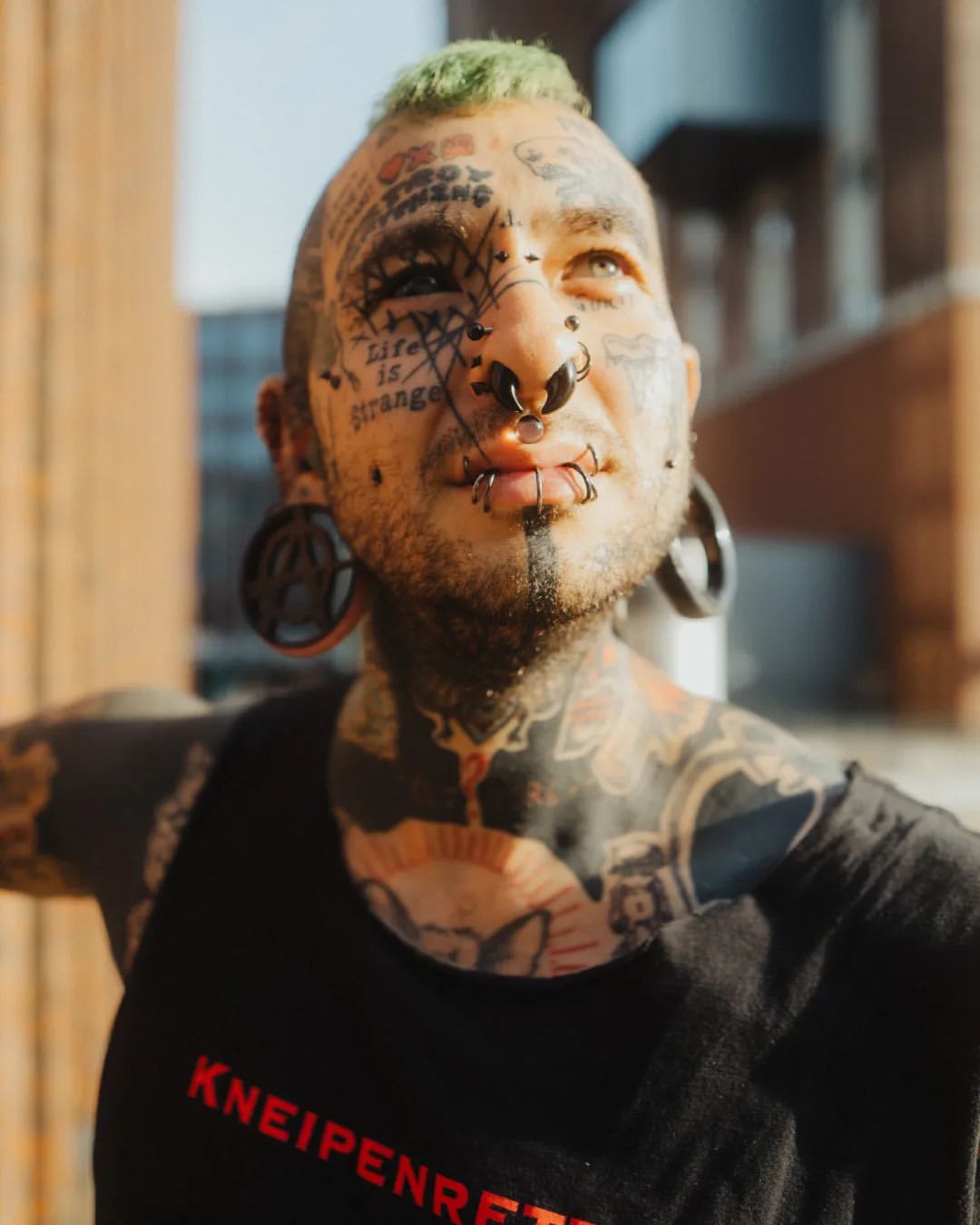
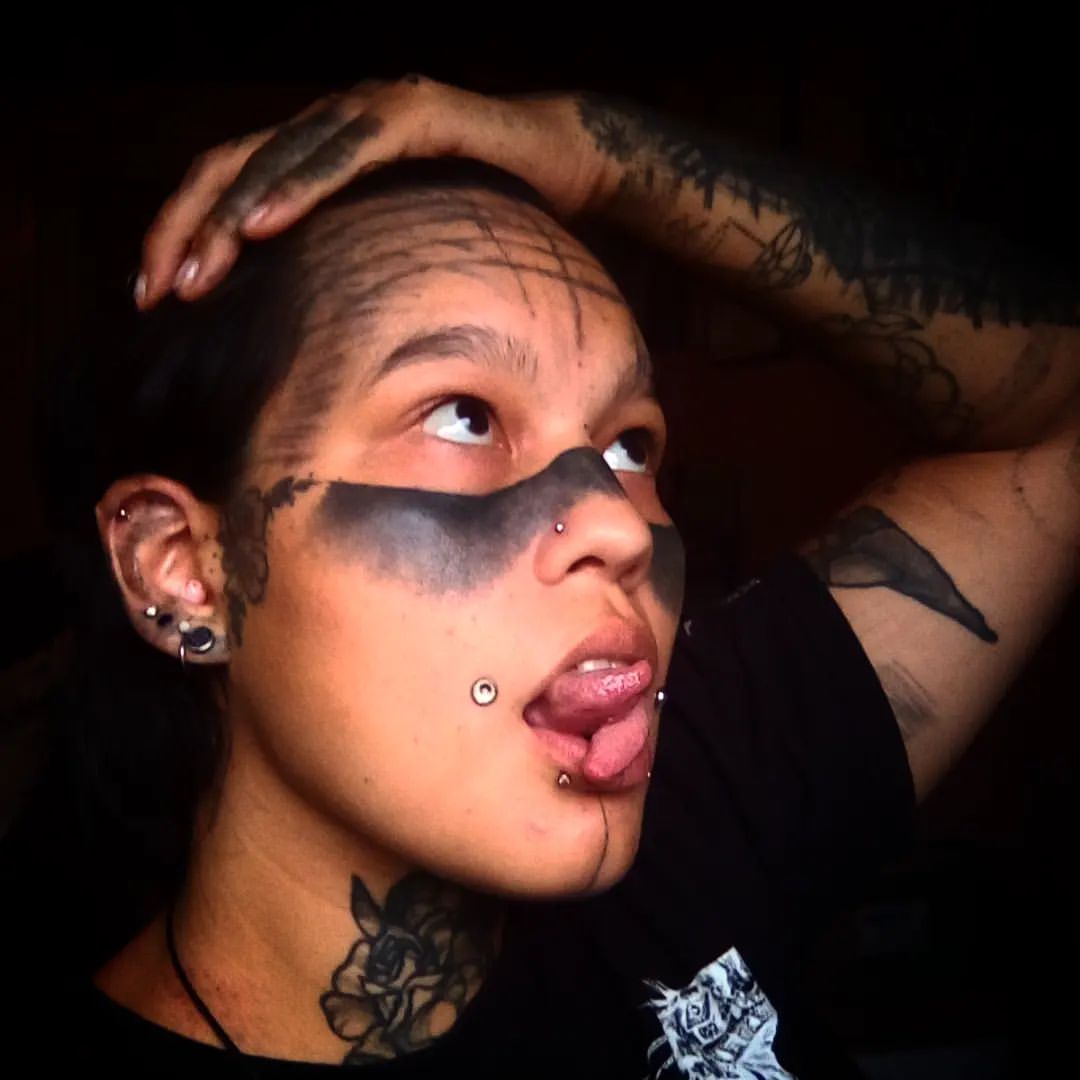
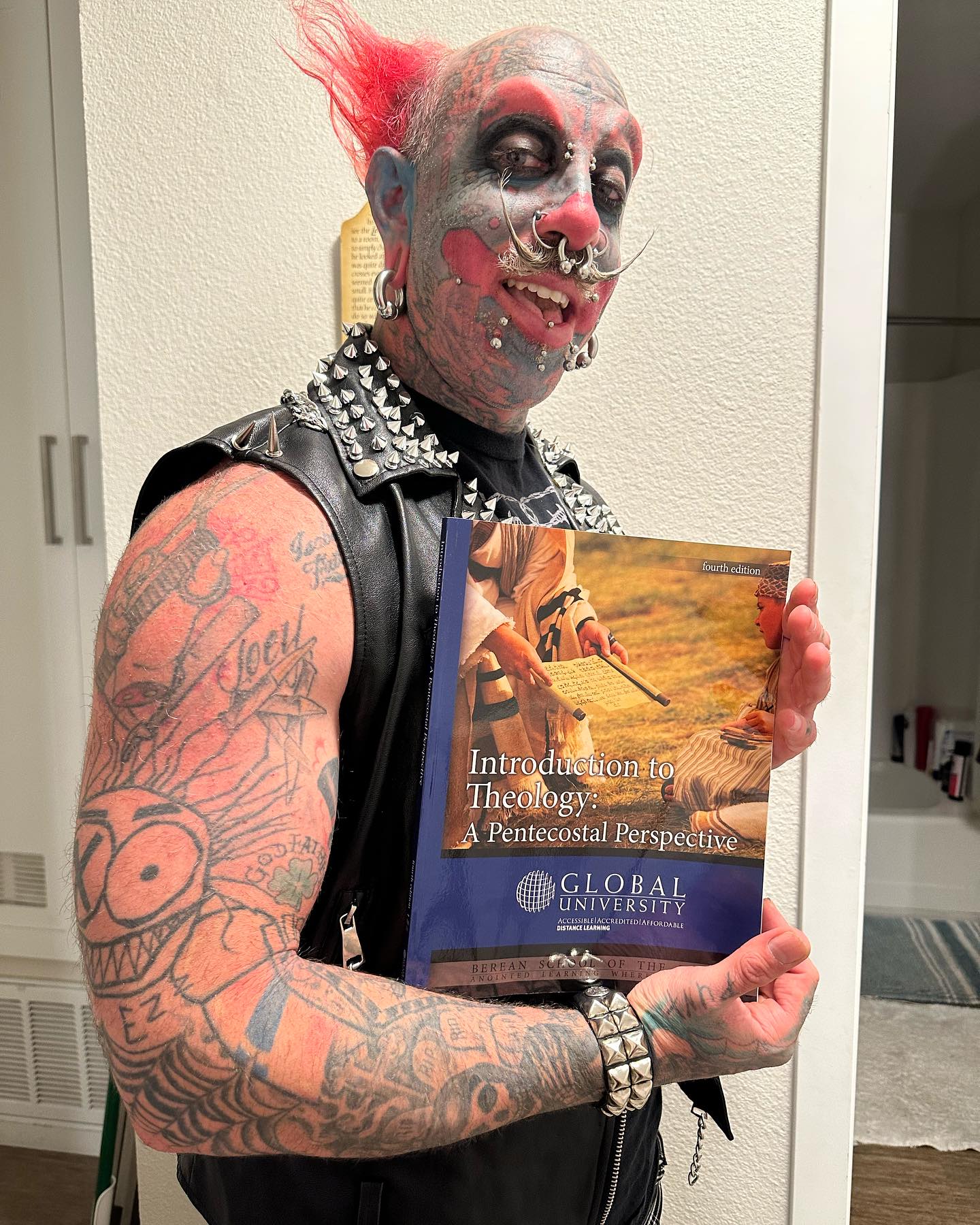
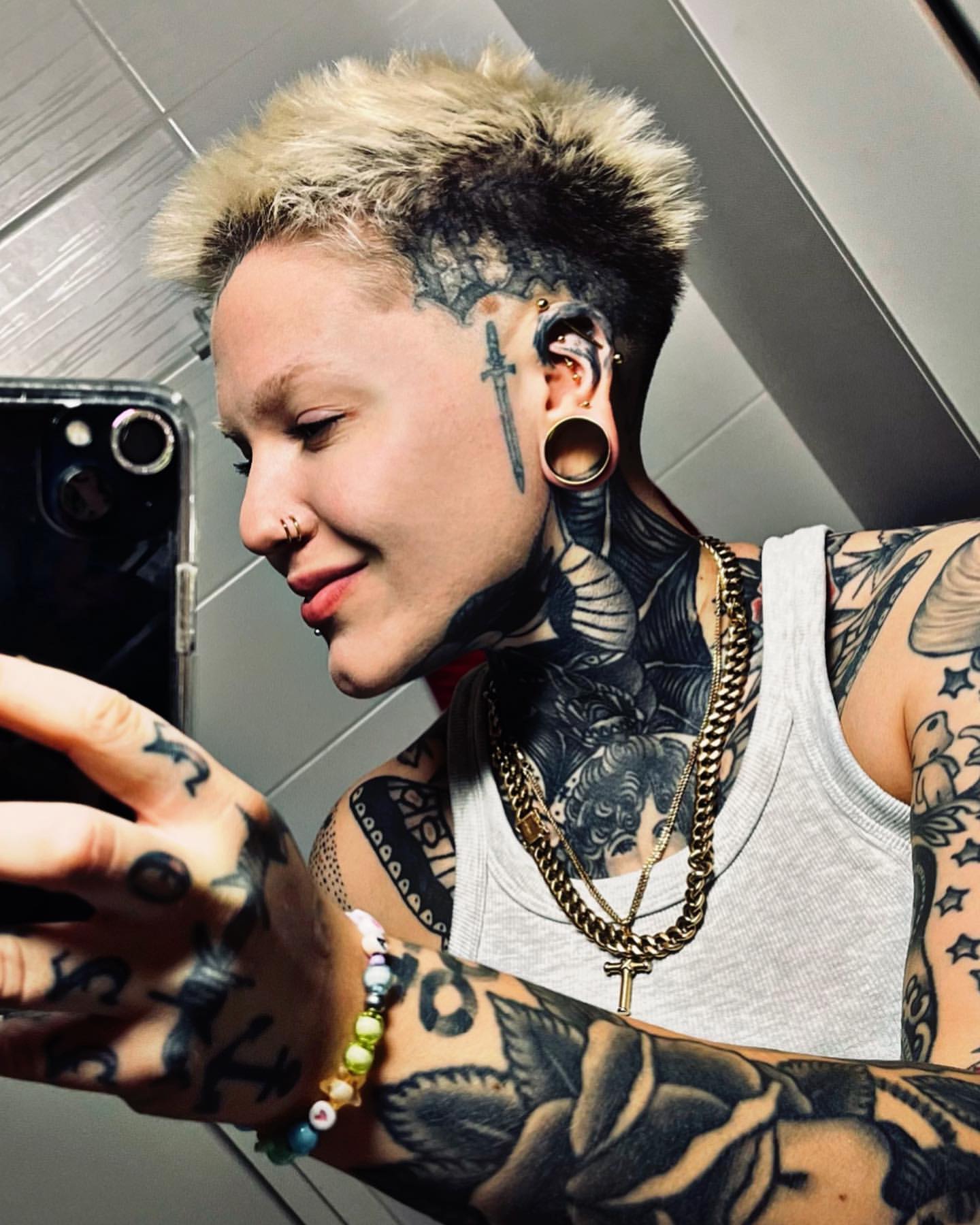

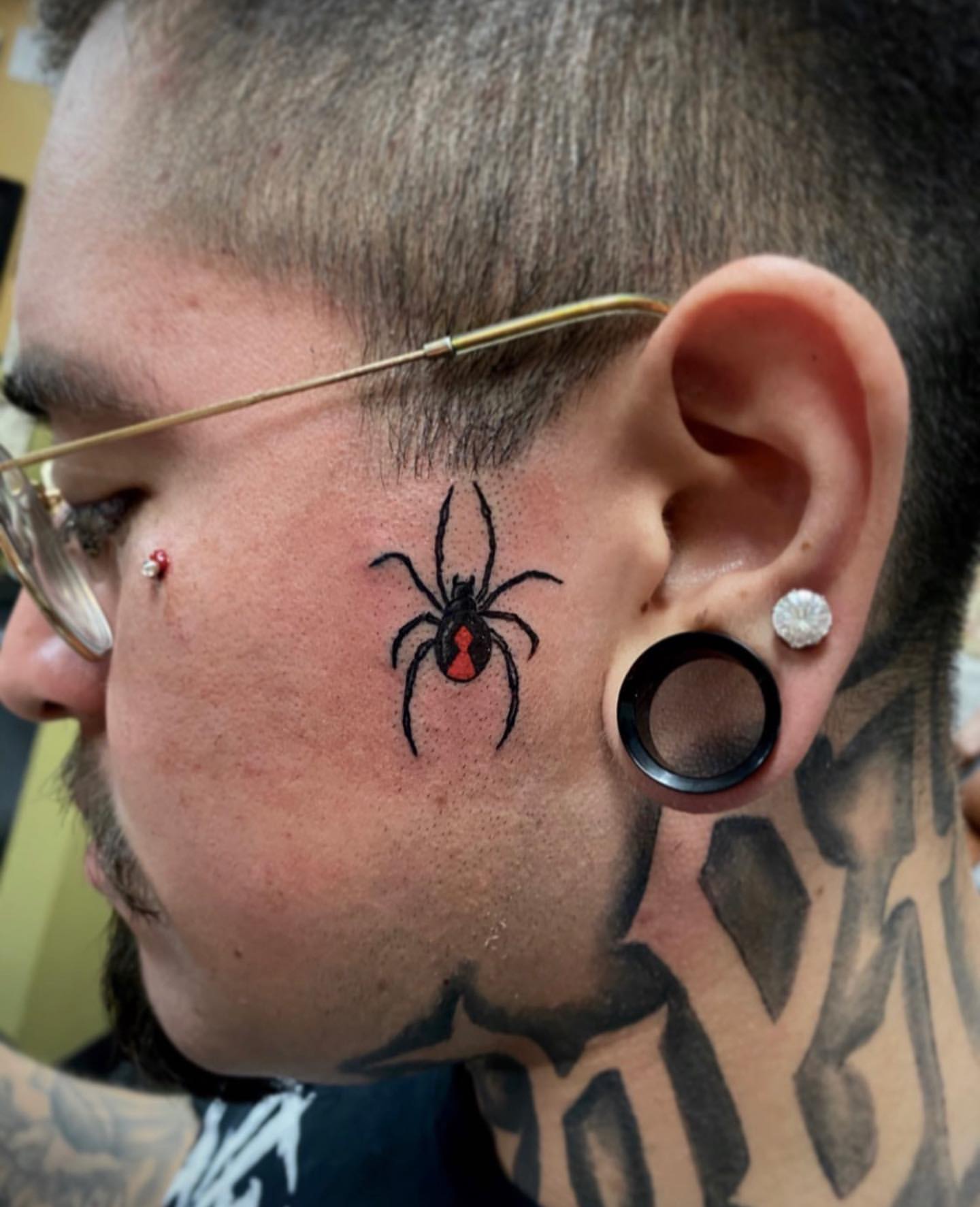
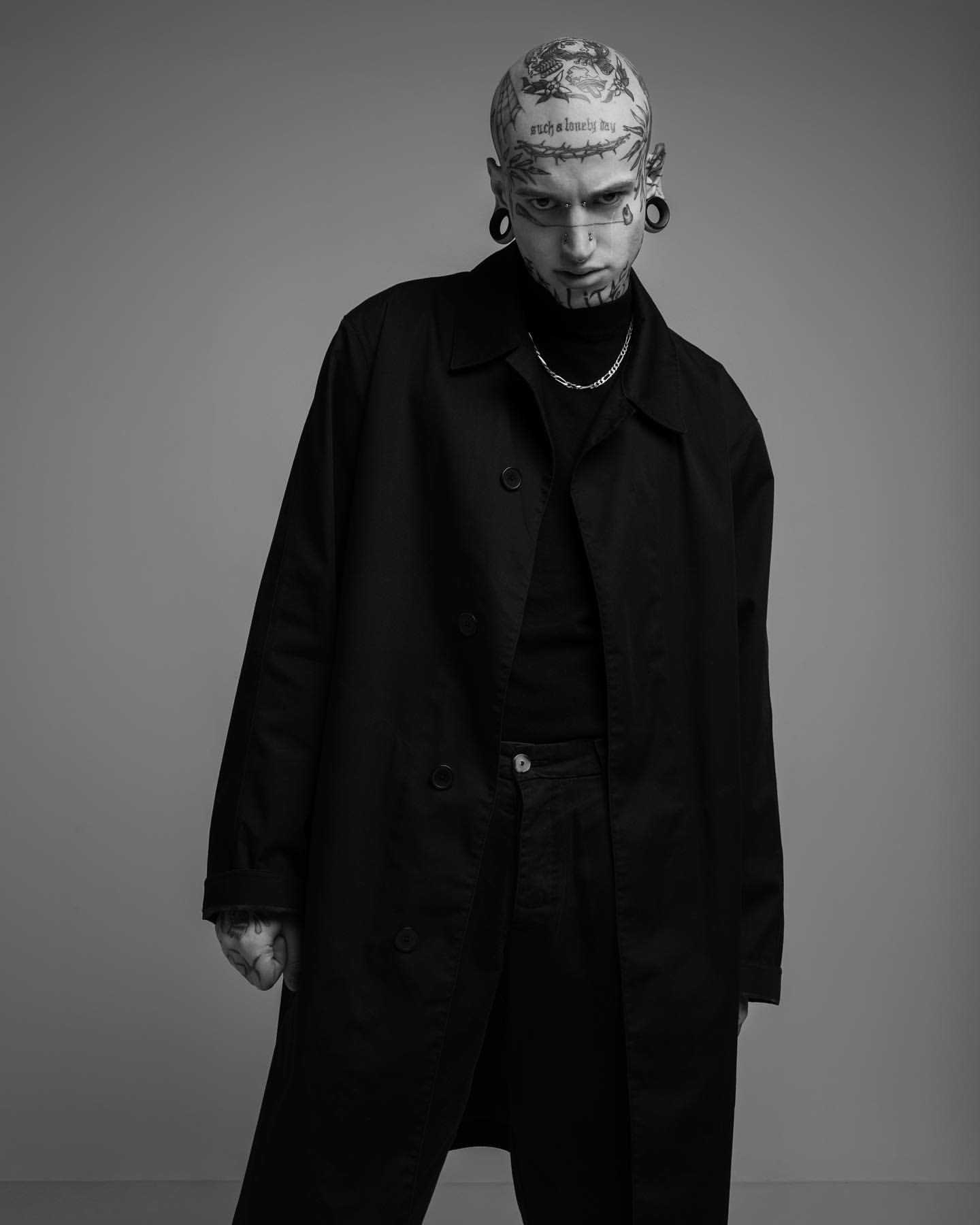
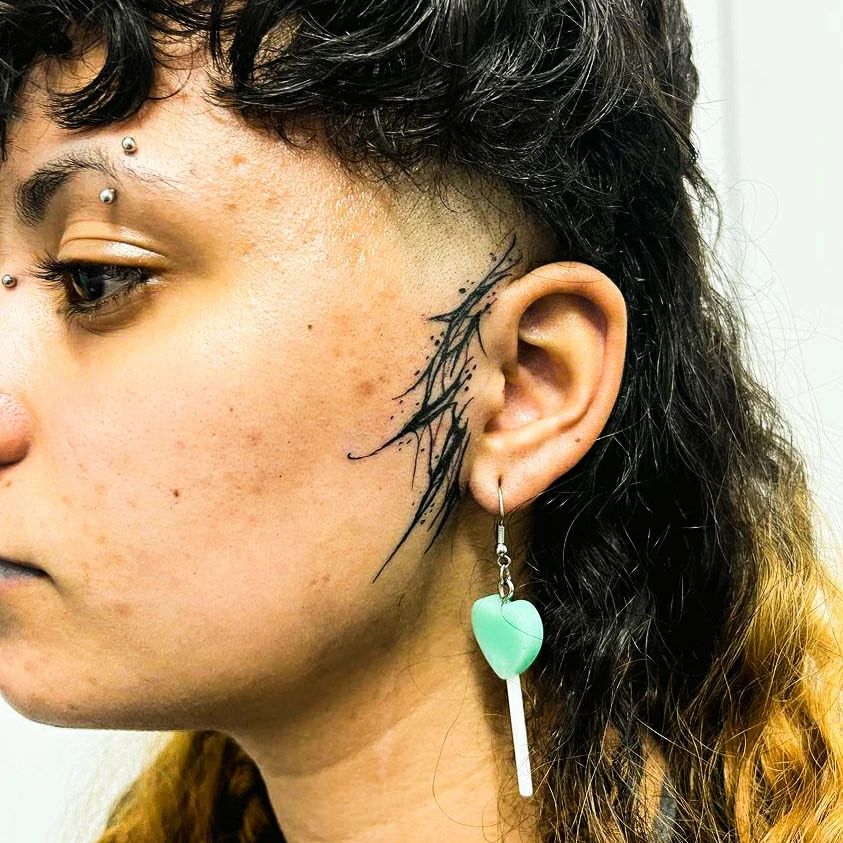
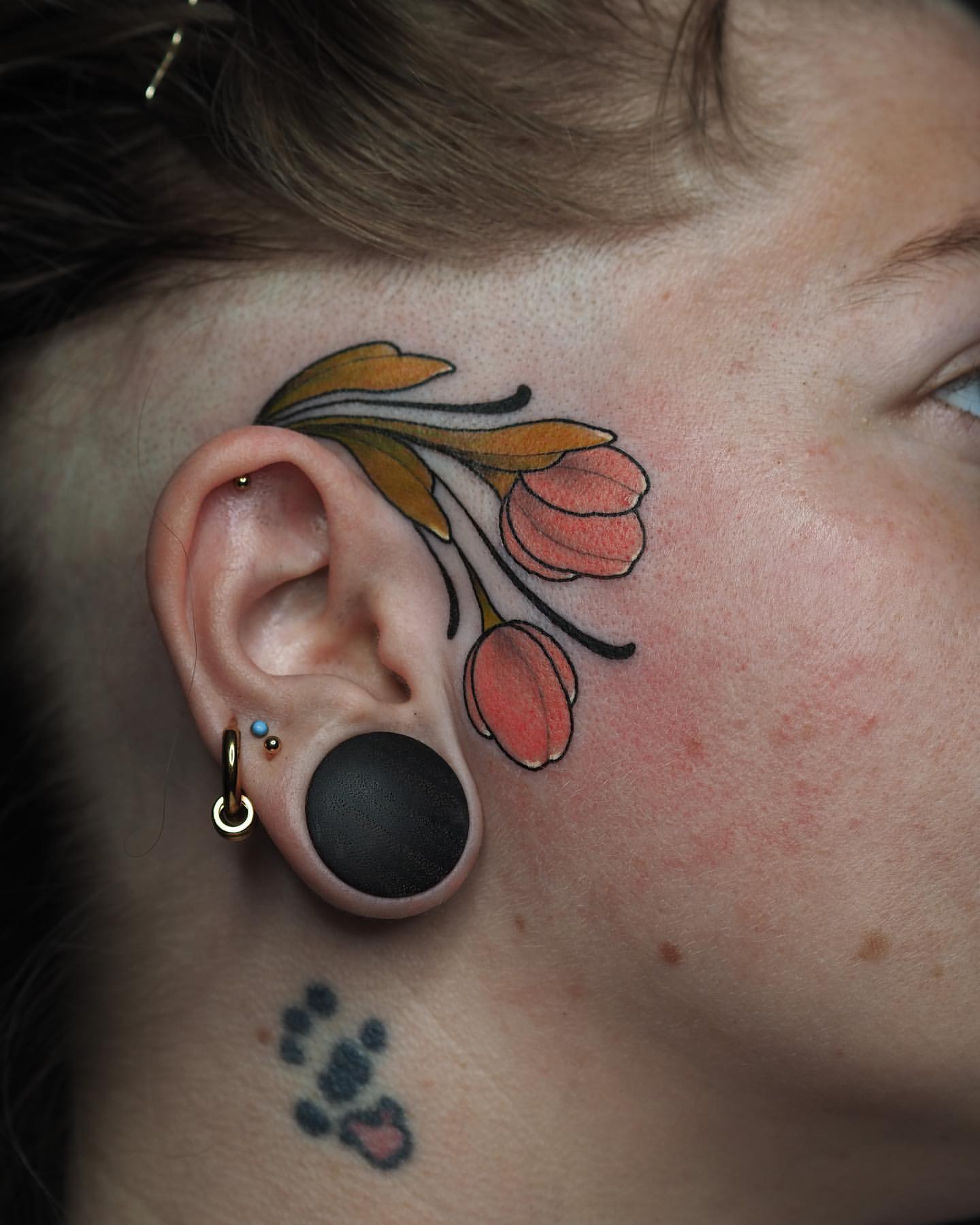
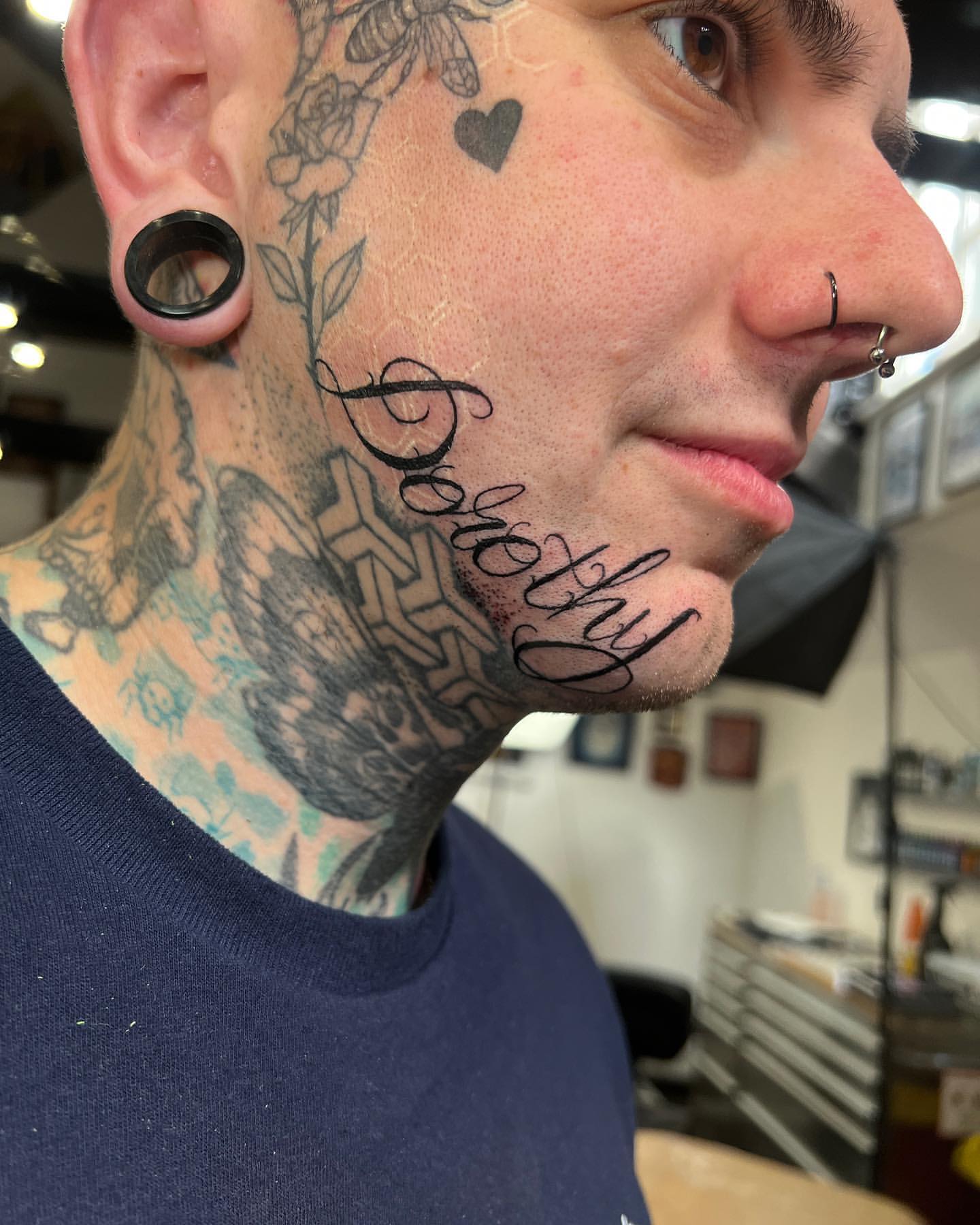
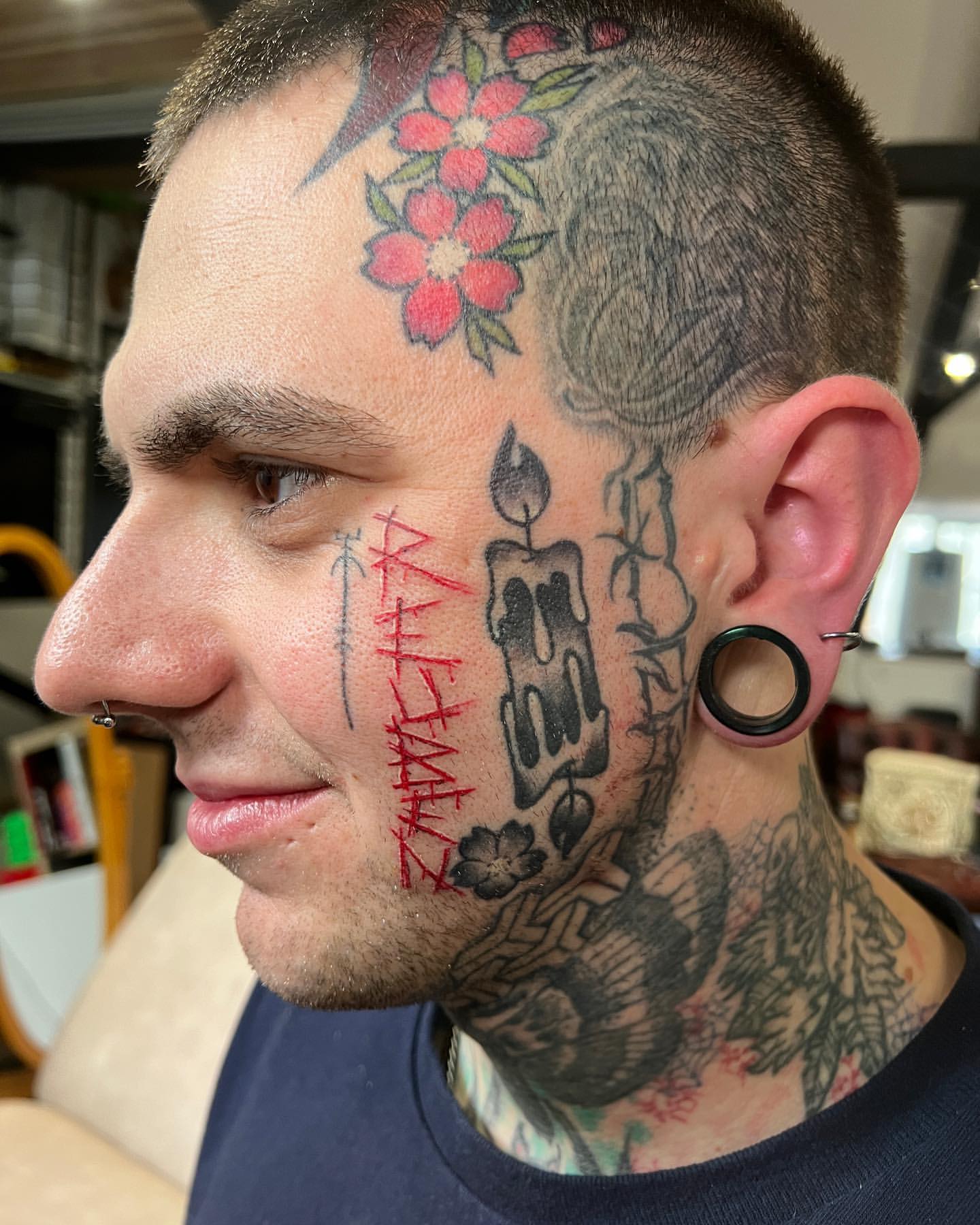


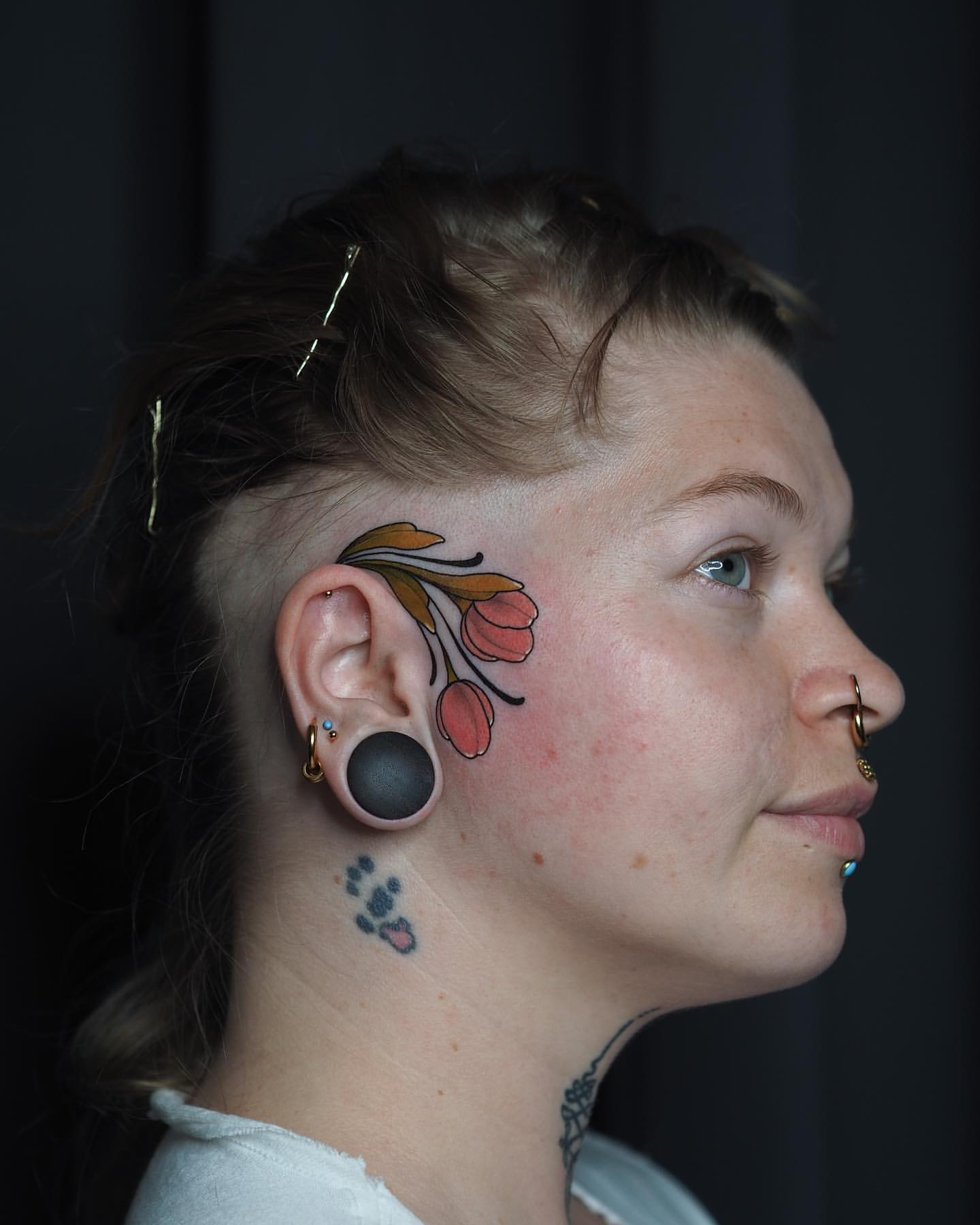
Significance of face tattoos in different cultures
The significance of face tattoos varies across different cultures. In the Maori culture, face tattoos were seen as a rite of passage and were intricately designed based on an individual’s ancestral background. These tattoos served as a visual representation of their lineage and were a source of immense pride. Similarly, in Polynesian cultures, face tattoos held deep cultural and spiritual significance. Each tattoo design had its own symbolic meanings, representing personal achievements, character traits, or spiritual beliefs.
Transition of face tattoos from taboo to trend
In the past, face tattoos were often associated with negative connotations and were seen as taboo in many societies. However, in recent years, there has been a shift in perception, with face tattoos gaining popularity in mainstream culture. This transition can be attributed to various factors, including the influence of celebrities and the reclamation of tattooing as a form of self-expression. Today, face tattoos are seen as a bold fashion statement and a way for individuals to display their unique identities.
Cultural Significance of Face Tattoos
Face tattoos in Maori culture
In Maori culture, face tattoos, or moko, hold immense cultural significance. These tattoos are a form of storytelling, with each design representing a specific narrative or genealogy. The process of receiving a moko involves a deep spiritual connection with the artist and is considered a sacred ceremony. The tattoos are often hand-tapped into the skin using traditional tools, symbolizing a connection to their ancestors and traditions.
Significance in Polynesian cultures
Similar to Maori culture, Polynesian cultures also place great importance on face tattoos. Each tattoo design carries specific cultural meanings, such as courage, strength, or honor. These tattoos were traditionally earned through acts of bravery, making them a symbol of warrior status. The intricate patterns and symbols used in Polynesian face tattoos reflect their rich cultural heritage and spiritual beliefs.
Face tattoos in other indigenous societies
Apart from Maori and Polynesian cultures, face tattoos have also played significant roles in other indigenous societies around the world. In tribes such as the Kayan people of Borneo, face tattoos are seen as a symbol of beauty and femininity. These tattoos are believed to enhance a woman’s attractiveness and indicate her readiness for marriage. Similarly, in some African tribes, face tattoos are used to denote tribal affiliations, achievements, or even protection against evil forces.
Face Tattoos in the Modern World
Counter-cultural trend
In recent years, face tattoos have gained popularity as a counter-cultural trend. Many individuals choose to get face tattoos as a form of rebellion against societal norms and expectations. This trend challenges traditional ideas of beauty and professionalism, allowing people to express their individuality in a bold and unconventional way.
Adoption by the mainstream
While face tattoos are still considered unconventional, they have gradually been adopted by the mainstream. Some individuals choose to get small and discreet face tattoos, allowing them to maintain their professional lives while expressing themselves creatively. This shift in perception has led to increased acceptance and understanding of face tattoos as a legitimate form of self-expression.
Face tattoos in the music and entertainment industry
The music and entertainment industry has played a significant role in popularizing face tattoos. Many influential musicians, such as Lil Wayne and Post Malone, have prominently displayed their face tattoos, normalizing the concept and inspiring others to follow suit. Face tattoos have become a part of their artistic brand and have contributed to the overall cultural acceptance and fascination surrounding the tattooing trend.
The Process of Getting a Face Tattoo
Consultation with the artist
Before getting a face tattoo, it is crucial to have a thorough consultation with a professional tattoo artist. This consultation allows the artist to understand your desired design, placement, and overall vision for the tattoo. It is important to choose an artist who specializes in face tattoos and has a portfolio showcasing their skill and experience in this particular area.
Designing the tattoo
Once you’ve consulted with the artist, the next step is designing the tattoo. Designing a face tattoo requires careful consideration of the placement, size, and overall aesthetics. It is essential to work closely with the artist to ensure that the design reflects your personal style and holds significant meaning to you. Take the time to collaborate with the artist and provide feedback to ensure the final design aligns with your vision.
Actual tattooing process
Getting a face tattoo is a meticulous and often painful process. The artist will first clean and prepare the skin before outlining the tattoo design. The tattoo is then created using a tattoo machine or traditional hand-tapping techniques, depending on the artist’s preference and the cultural significance associated with the tattoo style. The process can take several hours or multiple sessions, depending on the complexity of the design.
Aftercare and healing
After getting a face tattoo, proper aftercare is crucial for optimal healing. The artist will provide specific instructions on how to care for the tattoo, which may include applying a healing ointment, keeping the tattoo clean and moisturized, and avoiding direct sunlight and abrasive substances. It is important to follow these instructions diligently to prevent infection and ensure proper healing.
Risk and Downsides of Face Tattoos
Potential health risks
Getting a face tattoo, or any tattoo for that matter, carries certain health risks. The process involves piercing the skin, which can lead to infection if not properly sterilized. Additionally, allergic reactions to tattoo ink and scarring are possible risks. It is essential to choose a reputable tattoo artist and ensure that all equipment and materials used are sterile to minimize these risks.
Seriousness of commitment
Getting a face tattoo is a lifelong commitment. As the face is one of the most visible parts of the body, the decision to get a tattoo in this area should not be taken lightly. It is important to consider the potential impact that a face tattoo may have on personal and professional relationships. Factors such as societal perception, employment opportunities, and personal comfort should all be carefully weighed before making the decision.
Social stigma and employment challenges
Despite the growing acceptance of tattoos in society, face tattoos still face significant social stigma. Some individuals may hold negative perceptions or prejudices towards those with visible face tattoos, which can lead to social exclusion or discrimination. Moreover, face tattoos can present challenges in finding and maintaining employment, especially in more conservative industries. It is crucial to consider these potential challenges and the long-term consequences before getting a face tattoo.
Popular Designs and their Meanings
Tribal designs
Tribal designs are among the most popular choices for face tattoos. These intricate and bold patterns often symbolize cultural heritage, strength, and bravery. Different tribes and cultures have their own unique tribal designs, each with its own specific meanings. These designs can range from abstract geometric patterns to representations of animals and natural elements.
Lettering and quotes
Many individuals choose to get lettering or quotes as face tattoos. These can be meaningful words, phrases, or even mantras that hold personal significance. Individuals often select quotes that resonate with their life experiences or personal beliefs. Whether it’s a motivational quote or a reminder of resilience, lettering and quotes can be deeply meaningful when permanently inked on the face.
Iconography
Iconography, such as symbols and religious imagery, are frequently incorporated into face tattoos. These designs hold strong symbolic meanings and can represent one’s spirituality, cultural affiliations, or personal beliefs. From religious symbols to ancient symbols of protection or unity, iconography adds a layer of symbolic depth to a face tattoo.
Symbolic and personal meanings
Beyond specific design styles, many individuals choose to get face tattoos with symbolic or personal meanings unique to their own experiences. These tattoos may depict significant life events, represent personal values, or serve as reminders of important relationships. These highly personal designs allow individuals to express themselves on a deeply intimate level.
Celebrity Influence on Face Tattoo Culture
Influence of hip-hop culture
Hip-hop culture has played a significant role in the popularization of face tattoos. Artists and performers within the hip-hop genre often prominently display face tattoos as a visual representation of their bold and rebellious personas. This influence has permeated popular culture, leading to increased interest and acceptance of face tattoos among younger generations.
Famous individuals with face tattoos
Famous individuals from various industries have also contributed to the mainstream acceptance of face tattoos. Figures such as Mike Tyson and Post Malone are known for their prominent face tattoos, which have become iconic symbols of their personal brand. These influential individuals have helped to shift public perception and challenge traditional notions of beauty and professionalism.
Impact on popular perceptions and acceptance
The prevalence of face tattoos among celebrities has had a significant impact on public perceptions and acceptance. What was once seen as extreme or taboo is now viewed as a form of self-expression and artistry. The normalization of face tattoos by famous individuals has broadened societal acceptance and sparked conversations surrounding the freedom to decorate one’s own body.
Stories and Experiences
Personal reasons for choosing face tattoos
Every individual has unique reasons for getting a face tattoo. Some may choose to get a face tattoo to honor their cultural heritage or significant life experiences. Others may find empowerment and self-expression through ink on their face, challenging societal norms and expectations. The decision to get a face tattoo is deeply personal and can hold different meanings for each individual.
Experiences of social reaction
Individuals with face tattoos often experience varied social reactions. Some may face judgment and negative comments, while others find acceptance and curiosity from others. Social reactions can depend on cultural contexts, personal interactions, and the specific design or placement of the tattoo. It’s important for those considering a face tattoo to be prepared for and understand the potential range of reactions they may encounter.
Impact on personal and professional life
The choice to get a face tattoo can have a significant impact on an individual’s personal and professional life. While face tattoos can be empowering for some, they can also limit employment opportunities in certain industries or create barriers in establishing personal relationships. It is essential to consider these potential consequences and weigh them against the personal significance of the tattoo.
Deciding to Get a Face Tattoo
Considerations before getting a face tattoo
Before getting a face tattoo, it is crucial to carefully consider the long-term implications and personal motivations behind the decision. Understanding the potential impact on personal relationships, employment opportunities, and self-identity is essential. Reflecting on cultural significance, personal values, and commitment to the tattoo are all factors to consider in order to make an informed decision.
Finding the right tattoo artist
Choosing the right tattoo artist is of utmost importance when getting a face tattoo. Look for an artist who specializes in face tattoos and has a strong portfolio showcasing their skill and expertise. Take the time to research and consult with multiple artists to find someone who understands and respects your vision while prioritizing safety and professionalism.
Frame of mind required
Getting a face tattoo requires a certain level of mental and emotional preparedness. It’s important to be confident in your decision and understand the potential challenges and consequences that may arise. A strong sense of self, clear communication with the artist, and a willingness to accept the long-term commitment are all important factors for individuals considering a face tattoo.
Possible regret and tattoo removal
As with any tattoo, there is always a possibility of regret. However, the permanence and visibility of face tattoos can amplify these feelings. It is important to carefully consider the potential for regret and make an informed decision before getting a face tattoo. If regret does arise, tattoo removal is an option, although it can be a costly and lengthy process. It’s crucial to discuss the possibility of tattoo removal with a professional before getting a face tattoo.
Face Tattoo Removal
Process of tattoo removal
Tattoo removal is a complex process that utilizes methods such as laser therapy or surgical excision. For face tattoos, laser therapy is the most common method used. The laser targets the tattoo ink, breaking it down into smaller particles that are then naturally eliminated by the body. Multiple sessions may be required for complete tattoo removal, and results vary depending on factors such as the size and age of the tattoo.
Costs associated with tattoo removal
The cost of face tattoo removal can vary depending on factors such as the size, color, and complexity of the tattoo. Each laser removal session can cost several hundred dollars, and multiple sessions may be required to achieve desired results. Additionally, additional costs such as consultations and aftercare products should be taken into consideration when considering tattoo removal.
Physical and emotional impacts of removal
Tattoo removal, especially for face tattoos, can have physical and emotional impacts. The laser therapy process can cause discomfort, scarring, or skin discoloration. In addition, some individuals may experience emotional distress during the removal process, particularly if the tattoo held significant personal meaning. It is important to understand and consider these potential impacts before pursuing tattoo removal.
In conclusion, face tattoos have a rich cultural history and have transitioned from being taboo to trendy in the modern world. Understanding the significance and implications of face tattoos can help individuals make informed decisions before getting one. Whether as a form of self-expression, cultural identity, or rebellion, face tattoos hold personal, social, and professional implications that should be carefully considered. Ultimately, the decision to get a face tattoo is a deeply personal one that requires thoughtful contemplation and understanding of the potential risks and rewards.


